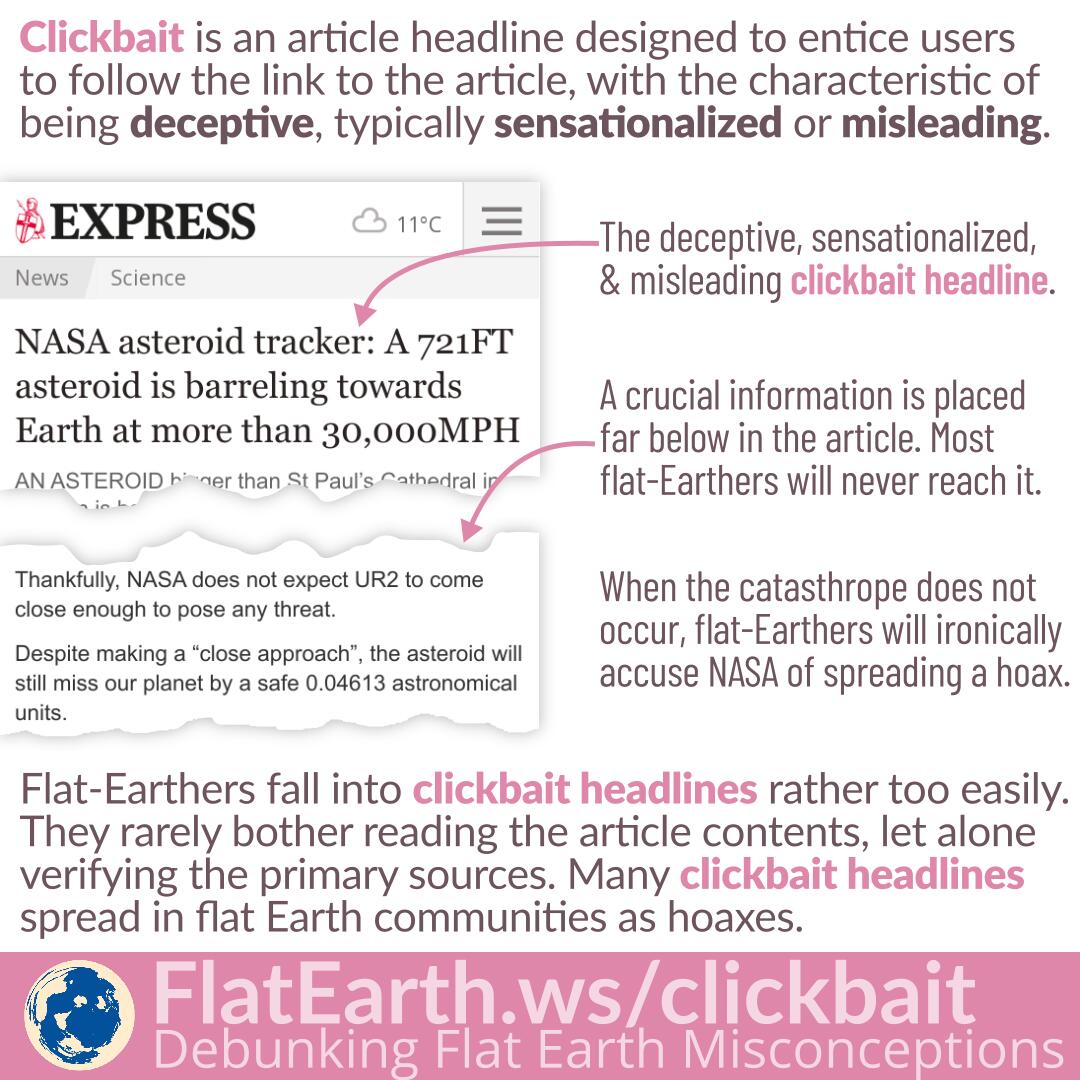Clickbait is a form of false advertisement which uses hyperlink that is designed to attract attention and entice users to follow that link and read to the linked article, with a defining characteristic of being deceptive, typically sensationalized or misleading.
Flat-Earthers fall into clickbait headlines rather too easily. They rarely bother reading the article contents, let alone verifying the primary sources — many clickbait headlines spread in flat Earth communities as hoaxes.
Many of the most popular clickbait headlines in flat-Earth communities involve asteroids. There are many online news sites —especially less than reputable sources— deliberately write a headline in such a way it implies that an asteroid will hit Earth soon. They do that to entice the readers to click the link and get more page views.
However, the headline does not reflect the content of the article. In the article, they would usually mention that the asteroid will surely not hit Earth, or have very little chance of it. For these “news sites,” inconsistencies do not matter, ad placements and pageviews are the utmost importance.
Unfortunately, flat Earthers are very easily deceived. They will usually not bother reading the article, much less verifying the primary sources, like NASA or ESA. The inaccurate headline spread in their communities as if it represents the entire article. When the catastrophe does not occur, flat-Earthers will ironically accuse NASA or ESA of spreading the hoax and discredit the space agencies, even though the problem is caused by flat-Earthers’ lack of critical thinking skills.
To those of us with sufficient critical thinking skills, it is not hard to locate the primary source of these articles and find that NASA or ESA never published a statement that an asteroid will hit Earth in the near future.
References
- Clickbait – Wikipedia


